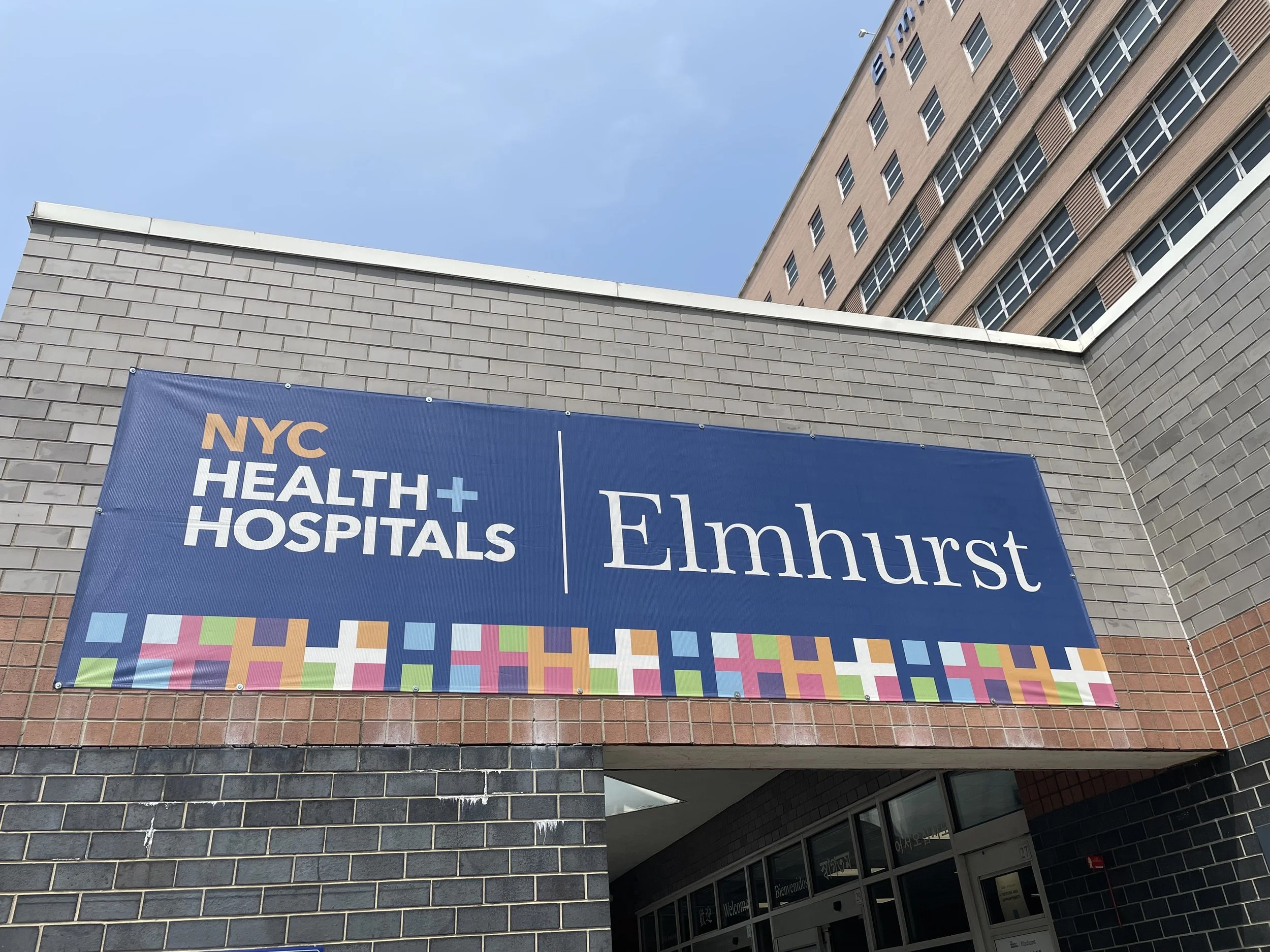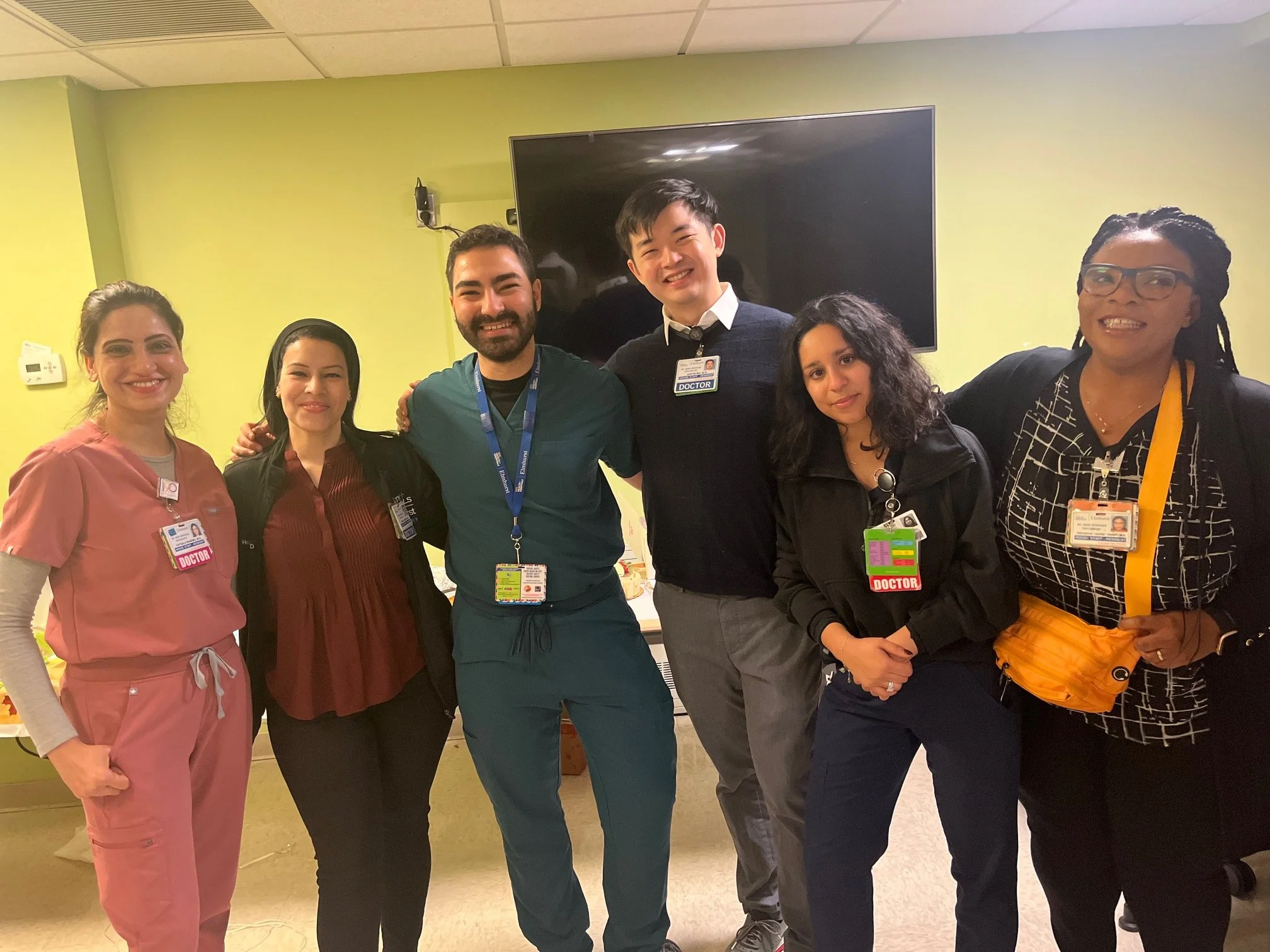Elmhurst Hospital residents poised to strike if deal is not reached
/Elmhurst Hospital may be without its resident doctors and interns who are poised to go on strike if a contract agreement is not reached before Monday. Eagle file photo by Jacob Kaye
By Ryan Schwach
In 2020, Elmhurst Hospital in Queens was the epicenter of New York City’s fight against COVID-19. Now, its resident physicians are on the brink of a strike if negotiations with their employer aren’t successful.
A little over three years since refrigerator trucks at Elmhurst used to store the bodies of the dead at the height of the pandemic made national news, residents and interns at the 545-bed Western Queens hospital are poised to strike on Monday if a contract agreement is not met before then.
This potential strike comes just days after an eleventh-hour deal was struck between Flushing and Jamaica Hospital residents with their employer, MediSys. However, the concerns from Elmhurst residents are different from that of their Queens hospital counterparts.
Elmhurst Hospital is a part of the city’s Health + Hospitals system, but the residents who work there are part of a program run by Mount Sinai, which operates several hospitals across the city.
While the concerns of MediSys resident’s were overall pay and working conditions, at Elmhurst, their main goal is to be paid on par with the residents at Mount Sinai’s Upper East Side campus.
“I think the main thing that we're really asking for is a fair contract that includes pay parity,” said Dr. Irfa Khan, a second year psychiatry resident at Elmhurst and union delegate. “Which, to us, means that we get paid the same as our co-residents.”
According to the union, the residents at Elmhurst are paid $7,000 less per year than their counterparts in Manhattan.
New Manhattan Mount Sinai residents beginning in July will be making $11,000 more than their Queens counterparts, the union says.
“We work at the same two hospitals, we share the same patient loads, we see the same patients, we have the same attendants that we work with, it is completely identical,” said Khan. “The only difference would be that our program is located within Elmhurst Hospital and their program is located within Mount Sinai Upper East Side campus.”
There are other benefits to working in Manhattan that Elmhurst residents don’t receive as well, they say. They include financial assistance for the many educational costs residents have, hazard pay and Ubers after a shift.
“What happens when another pandemic occurs, how do we make sure residents feel safe and cared for while at the front lines?” said Dr. Sarah Hafuth, also a psychiatry resident at Elmhurst. “Elmhurst was struck tremendously during the pandemic and a lot of our residents were not only witness to this, but actively working at the front lines.”
“[We] just [want] something to help make us feel safe and that we’re cared for,” said Khan.
Residents in the psychiatric unit at Elmhurst Hospital including Dr. Irfa Khan, second from right. Courtesy of Khan
For the doctors, who serve one of the densest immigrant neighborhoods in the entire city, it is hard for them to separate the hospital’s service population when thinking about the reasoning behind the discrepancies. In addition, the residents at Mount Sinai’s main campus are not connected to the Committee of Interns and Residents, the union that represents Elmhurst.
“Why not Elmhurst? Is it because of where Elmhurst is located?” said Khan, who’s parents immigrated from Pakistan to New York City. “It's not on the Upper East Side, like the fancy Mount Sinai main hospital. Is it because the Elmhurst Hospital residents are part of the union? We haven't really gotten clear answers to our questions.”
“This is very internal and very targeted to us,” she added.
Residents at Elmhurst have been without a contract for over a year, and the union argues that Mount Sinai has negotiated in bad faith. The union says they have had to petition to get the operator to the table.
“I come home from work exhausted, after having worked many hours, to then sit in on a Zoom call for multiple hours hoping that this is going to be the last bargaining session we have to have,” said Hafuth. “Every session I enter hopeful that Mount Sinai will meet us with a modicum of respect with regards to our demands, and move forward in a way that feels reasonable, and to this day that has not been the case.”
As was the case with the other Queens hospitals, striking is something the residents say is a point they never hoped to reach.
“It needs to be clear that the residents of Elmhurst do not want to go on strike,” said Hafuth. “At the same time, we are not willing to endanger ourselves and we feel as though we are not being treated equally by Mount Sinai and at some point we have to do something about that.”
“Mount Sinai can avert a strike at any time by bargaining in good faith and we’re calling on them to do so,” she added.
CIR announced on Thursday that there was to be a negotiation session at 7 p.m. on Thursday, which could be the last chance to avoid a strike. However, if negotiations at Flushing and Jamaica are any indication, a deal may not be reached until the last minute.
“Patients are supported when doctors are supported and it feels like Mount Sinai is not supporting us the way they’re supporting their doctors in the Upper East Side,” said Hafuth. “It’s not fair and it’s not right.”
Mount Sinai did not respond to the Eagle’s request for comment.





